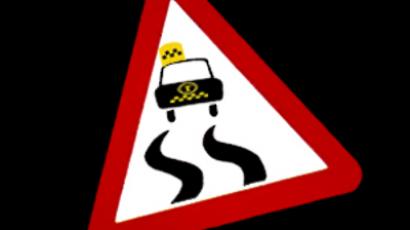Anti-doping law tackles those who want to win at all costs
In Russia, action against drugs has been taken beyond professional sport and into public gyms, as the winter Olympics approach and doping controls become tougher.
Tougher laws now mean distributors of anabolic steroids could face prison.
Russian sport is no stranger to doping scandals, bringing disqualification for some top-level stars. But the consequences can be even more tragic – as in the case of 19-year-old ice-hockey star Aleksey Cherepanov, who died following a match in October 2008, after using performance-enhancing drugs.
”Of course some sports people want to win the big money and will do anything and use anything to get this,” says Sergey Portugalov, Chief nutritional adviser to the Russian Olympic team.
Action against doping is a top a priority in Russia, with President Medvedev ordering improved drug testing facilities, and Prime Minister Putin signing a decree including a long list of banned substances. But the problem is not only in professional sport.
Steroid use is becoming increasingly prevalent among fitness enthusiasts, eager for the perfect body and willing to take short-cuts and extreme risks in order to achieve it.
Athlete Andrey Popov states that pro athletes are just the tip of the iceberg, while the rest are amateur athletes.
“They are numerous, and many just lack an understanding,” Popov said. “They see pictures and want to emulate the glamorous image. They don’t want to wait ten or twenty years to make the grade. They don’t want to wait even a few months, and thus they start taking the steroids.”
Russia’s State Duma has changed the law, ensuring that not only sportsmen and women are liable for doping offences, but also coaches, doctors and sports federations.
Ivan Elisavetchenko, from the Moscow Service of Medicines’ Legal Control, says that it is trainers in sport clubs who encourage their clients to try drugs.
“They tell people they can get a pill or an injection for a very quick result, so the chain starts,” Elisavetchenko explained. “Consumers buy from trainers, trainers buy from dealers; dealers supply to several trainers; then there are wholesalers.”
Targeting of fitness clubs distributing performance-enhancing drugs has had some success. Not so long ago, steroids could be easily bought online or at gyms.
And whereas in the past, distributors of anabolic steroids were fined or put on probation, recent cases have resulted in prison sentences.
Despite the increased risks and stricter sanctions, however, new, even more-dangerous doping drugs are appearing on the market – which experts say could have potentially horrendous consequences.
The battle against doping in sports is a worldwide one, but with tougher regulations and increased enforcement, Russia is hoping for an end to the culture of “winning at all costs” from athletes risking not only their careers, but also their lives.














